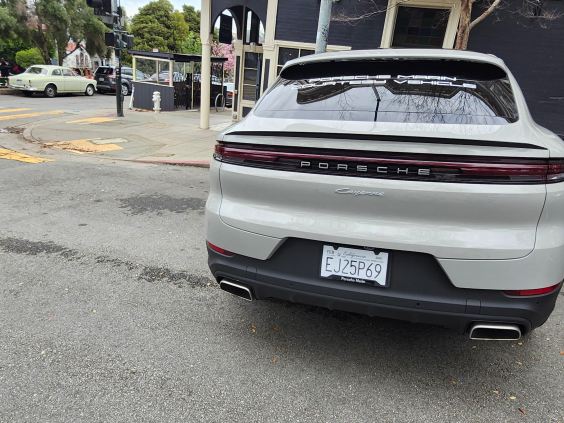Last week, the State of California dropped at least three long but important documents: reports on transportation needs, outcomes of transportation spending, and CAPTI 2.0. Streetsblog is aiming to produce summaries and some analysis of these reports quickly and later amplify reporting done by other groups and hosting experts our podcast as time goes on. Yesterday, Joe Linton reviewed the Select State Highway System Project Outcomes report.
Last Friday, the California State Transportation Agency (CalSTA) released the Climate Action Plan for Transportation Infrastructure (CAPTI) 2.0. The document contains 14 “key actions” to help the state reduce greenhouse gas emissions.
“California will persist in its investment of mobility options that are sustainable, convenient, seamless and affordable while also connecting our communities throughout the state,” said Governor Gavin Newsom in a press statement, referencing the reality that California has lost a federal partner in the fight against global warming.
The fourteen key actions include:
- Creating statewide standards for road pricing (tolls)
- A commitment to working towards Vehicle Miles Traveled/Greenhouse Gas (VMT/GHG) neutrality in “key state transportation programs.”
- Require that funding for highways designed to improve freight movement actually improve freight movement.
- Create a central delivery team to coordinate zero-emission freight investments.
- A new Caltrans policy to minimize housing displacement as a result of highway projects.
The fifth point (item 3.3, page 23 in the report) is especially timely. Streetsblog has covered how road widenings in Los Angeles County have led to hundreds of homes being destroyed in recent years. Streetsblog L.A. editor Joe Linton reviewed Caltrans’ report on “Highway System Project Outcomes” yesterday which reported that between 2018 and 2023, Caltrans tore down 623 homes and businesses to make way for 553 new miles of highway lanes.
"We commend CalSTA for their continued commitment to the principles in CAPTI, which aim to shift funding away from highway expansion to increase support for sustainable transportation," writes Jeanie Ward-Waller, with Fearless Advocacy. "This update takes several strong new steps forward."
The first CAPTI plan was approved by CalSTA in 2021 and is credited for guiding the state’s discretionary transportation spending. The plan included 34 “key actions” for the state to take which it completed in 2024.
“For three straight years, implementation of CAPTI actions has shown that with intentional action through our infrastructure investments, we can make huge strides in tackling transportation emissions,” said California Transportation Secretary Toks Omishakin.
However, in 2023, Calbike Policy Director Jared Sanchez wrote that despite CAPTI’s big goals, the state was falling short. Sanchez noted that the state still spends the majority of its transportation dollars on projects that increase vehicle miles traveled and air pollution.
“The scale of progress…while better than nothing, doesn’t match the urgency of our climate crisis. We need a wholesale pivot to clean transportation centered on making biking, walking, and public transit appealing and accessible, yet the bulk of California’s green transportation spending is directed at EVs and charging infrastructure,” wrote Sanchez in 2023.
One of the culprits of California not rising to meet its own climate goals is Newsom, who creates the first draft of the state budget and signs it into law. Newsom also vetoed legislation that would have aligned budgets with CAPTI.






